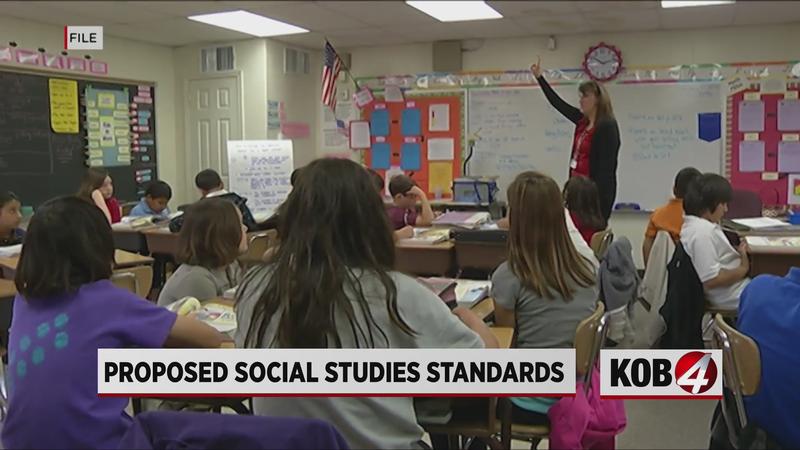NMPED considers changes to New Mexico’s social studies curriculum
[anvplayer video=”5069646″ station=”998127″]
ALBUQUERQUE, N.M. – New Mexico’s Public Education Department is going through the process of revising the way social studies will be taught in schools.
It’s something that education departments across the country do every 10 to 15 years, and each time — the process is controversial.
The proposed social studies standards are organized into six "anchor standards” – these are the core ideas behind the curriculum at each grade level. The anchor standards are: civics and government, economics, geography, history, ethic, cultural and identity studies and inquiry.
New Mexico’s Republican Party has accused the Public Education Department of using the standards to bring the controversial teaching of critical race theory into schools.
Critical race theory is a legal theory, sometimes taught in law schools, that places blame on America’s laws, and not necessarily individuals, for racial inequalities. State education officials said it’s not a part of the proposed standards.
“The standards do not have any critical race theory. No critical theory in the standards, and they are not taught in a K-12 setting. They’re something that’s a higher ed space,” said NMPED Deputy Secretary Gwen Perea Warniment.
They also said they’re legally required to include the ethic, cultural and identity studies standard by a ruling in the Yazzie Martinez case. In a 2018 ruling, a judge determined the state violated New Mexico’s constitution by failing to provide a sufficient education to all students, specifically low-income students, special needs students, English learners and Native American students.
“Culturally and linguistically appropriate is the language that came from the ruling of Judge Singleton, and the standards that we’ve had in the past were not meeting that criteria,” said NMPED Sectary of Education Kurt Steinhaus.
A public hearing on the proposed standards is set for Friday at 1 p.m. It will be held over Zoom so people from all over the state will be able to view the hearing and comment.
